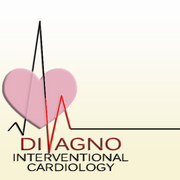A Guide to Nuclear Stress Testing

A nuclear stress test is a type of cardiac screening test that provides information about the heart, including common issues. It is used to test the amount of blood moving through the heart, and it pinpoints any irregularities in the heart muscles. If you’ll be getting one, here’s what you need to know.
What You Should Know About Nuclear Stress Testing
What the Nuclear Stress Test Is
The nuclear stress test is a cardiac screening method used to determine the health and functionality of the heart, damage to the heart, and blood flow. During the screening, a small amount of dyed radiation will be injected into the bloodstream and tracked while you exercise. For patients who are unable to exercise, medication may be used to increase heart rate.
Why Some People Need the Test
 If you struggle with chest pains, shortness of breath, and unexplained fatigue, there may be an issue with your blood flow or heart. Nuclear stress testing can provide heart doctors with valuable information, such as your heart size and shape, if there are blockages in the valves and arteries or signs of heart disease. With this information, a personalized health plan can be created to manage the symptoms.
If you struggle with chest pains, shortness of breath, and unexplained fatigue, there may be an issue with your blood flow or heart. Nuclear stress testing can provide heart doctors with valuable information, such as your heart size and shape, if there are blockages in the valves and arteries or signs of heart disease. With this information, a personalized health plan can be created to manage the symptoms.
How to Prepare
Before your cardiac screening test, a heart doctor may require you to fast the morning of and refrain from beverages and caffeine for a day or two before the test. During the day of the test, you should wear comfortable clothes that are easy to exercise in; for example, wear loose clothing that doesn’t restrict or tighten during movement. Tell your doctor about all the medications you’re taking, including the use of an inhaler, and inform them if you have a defibrillator or pacemaker.
When you need cardiac screening, turn to DiVagno Interventional Cardiology, MD, PA, in Bergen County, NY. With state-of-the-art equipment and over 20 years of experience, you’ll receive the best patient-centered cardiac care in the area. To learn more about their cardiac screening services, visit their website. Call (201) 845-3535 to speak to one of their staff members.
About the Business


